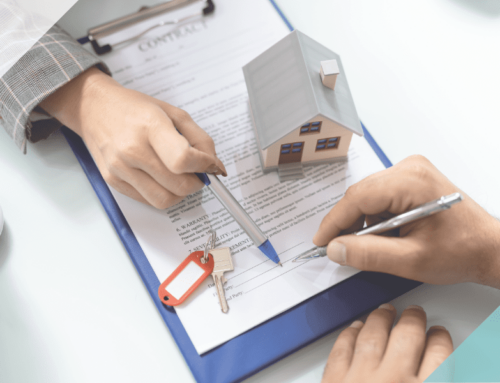Selling your home might be up there on the list of most stressful life events, but it’s also a necessary, and positive, part of moving up the property ladder. If you’re considering putting your house on the property market, then Attwells Solicitors have some great advice on how to make the process work for you.
Selling your home before you buy
If you don’t have kids, large pets, or various other dependants, then thinking about the advantages of selling your home before you actually buy might be worth considering. Of course, you need somewhere to live once your house is sold, but if a short-term stay at, say, a parent’s house is feasible, then read on.
Selling your home without the pressure of buying at the same time gives you more control over the sale of your house. For instance, you won’t feel as pressured to make concessions to a picky buyer because you’re afraid your own house purchase is slipping out of your grasp. And once you’ve completed your house sale, you’ll have a cash sum in your bank, which means you’re then in a stronger position when it comes time to purchase your next property, because you’re essentially free from a chain, and have cash ready to go.
Keep the housing market in mind though, because if you wait too long, and house prices rise significantly in your area, you might find you’re struggling to afford the kind of property you want.
Find a good estate agent to make selling your home smooth-
Marketing and selling your home effectively requires an estate agent. They will also take the lead in communicating with interested buyers on your behalf. It’s important to remember that you’re recruiting them as an agent, and they’re essentially working for you, usually on a commission basis. Before you choose which estate agent you want to market your property, you should always ask friends and family for recommendations, be sure they have experience selling similar properties and have good local knowledge. It’s also important that you think they are giving your property the right market value.
When it comes to conveyancing, don’t just go with an estate agent’s suggestions-
Many estate agents will either offer you their in-house conveyancing service or recommend an external company. However they phrase it, you don’t have to take them up on this offer. In fact, just like when choosing an estate agent, you should shop around, get recommendations, read online reviews, and get a few quotes before you commit to a conveyancer.
Make sure you can get a fixed fee quote for your conveyancing-
A reputable firm should offer a fixed fee quote and are prepared to stick to it. Check out our instant online conveyancing calculator to see how we do it.
Remember, price isn’t everything-
Of course, don’t base your decision purely on price. You should also consider the reputation of the firm you agree to conduct your conveyancing. At the end of the day, they will be responsible for the legal side of your property sale, and if they make an error, it could end up costing money, cause delays, and even jeopardise your house sale. A good conveyancing solicitor should also be able to take the time to proactively keep you updated on how the sale is progressing, and be able to give you an idea of the date when completion should occur… all without burying you in legal jargon.
Don’t sit on paperwork-
If your conveyancer sends you documents, you should aim to read them, and if satisfied, sign and return them as soon as possible. This will ensure you aren’t causing delays at your end that may hold up selling your home.
Once contracts are exchanged, you’re legally committed to the sale. Once the terms of sale have been agreed, and you’re happy to go ahead with the sale of your property, both you and the person who is buying your property will sign contracts, and your conveyancing solicitor will exchange these for you. Before you sign on the dotted line, make sure you’re committed to your house sale. If you decide to pull out after exchanging, you will be in breach of that contract and may have to pay penalty costs.
What happens on the completion date? Once your conveyancing solicitor has sorted out any issues and finished all the local area searches required, a completion date will be established and agreed upon by all parties. When this day comes around, your solicitor will receive the money you’re owed from your buyer. They will then send over the signed documents of ownership to your buyer’s solicitor, and you will need to have moved out of the property. At this point, your solicitor will pay off any remaining mortgage you may have, cover any estate agent fees, and deduct their own payment. At this point, you will receive the remaining balance.
If you would like to receive a conveyancing quote, call our enquiries team on 01473 229 200.





